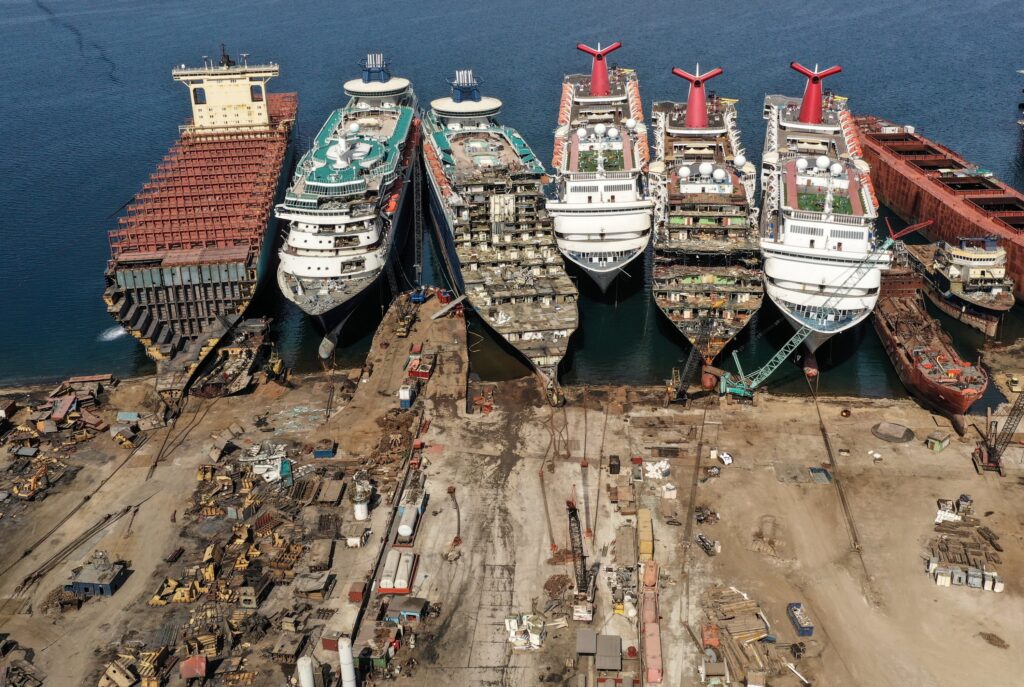Artificial Intelligence (AI) has permeated various sectors of the global economy, sparking technological transformations and reshaping industries in its wake. One such sector experiencing a profound revolution is the maritime industry. With advancements in AI technologies, shipping companies, port operators, and maritime service providers are harnessing the potential of AI to enhance safety, efficiency, and sustainability in their operations. In this article, we explore the impact of AI on the maritime industry and its potential to steer the industry towards a smarter, more innovative future.
- Enhancing Navigation and Safety
One of the primary applications of AI in the maritime industry is improving navigation and safety. AI-powered navigational systems, often combined with advanced sensors and machine vision, allow ships to make real-time decisions based on various environmental factors, such as weather conditions, sea currents, and other vessels in proximity. This enables ships to optimize routes, avoid potential hazards, and reduce the risk of collisions.
Moreover, AI-based predictive maintenance systems continuously monitor onboard machinery, detecting anomalies and potential failures before they occur. This preventive approach not only minimizes downtime but also enhances the safety of crew and cargo, leading to increased operational efficiency and cost savings.
- Autonomous Shipping
As AI technology matures, the concept of autonomous shipping is gaining traction in the maritime industry. Autonomous vessels, often referred to as “unmanned” or “crewless” ships, leverage sophisticated AI algorithms, advanced sensors, and advanced communication systems to navigate the high seas without human intervention.
Autonomous ships offer several advantages, including reduced labor costs, increased operational hours, and the potential to optimize shipping routes further. While fully autonomous vessels are not yet prevalent due to regulatory challenges and safety concerns, the industry is moving towards autonomous features and remote operations, which will gradually reshape the maritime landscape.
- Smart Ports and Logistics
AI is also transforming port operations and logistics, making them more efficient and streamlined. Smart ports utilize AI-driven technologies such as automated cranes, intelligent container management systems, and predictive analytics to optimize cargo handling processes.
AI-powered systems can predict vessel arrivals, estimate container unloading times, and allocate resources accordingly. This level of optimization results in shorter turnaround times for ships, reduced congestion at ports, and improved overall supply chain efficiency.
- Environmental Sustainability
The maritime industry has been under pressure to reduce its environmental impact, with emission regulations becoming stricter. AI can play a significant role in achieving sustainability goals by enabling better route planning to minimize fuel consumption and emissions.
Additionally, AI is being employed to analyze data from various sensors on ships, allowing operators to optimize engine performance and energy usage. This data-driven approach fosters a culture of continuous improvement in fuel efficiency, leading to a greener and more environmentally conscious maritime sector.
- Predictive Analytics and Demand Forecasting
AI-driven predictive analytics is transforming the way shipping companies manage their fleets and inventory. By analyzing historical data, market trends, and customer behavior, AI algorithms can make accurate demand forecasts, enabling companies to optimize their vessel deployment and cargo distribution.
This data-driven approach minimizes empty container trips, reduces operational costs, and ensures that vessels operate at near full capacity, resulting in a more profitable and sustainable business model.
Conclusion
The maritime industry is navigating towards a future where AI-driven technologies are redefining its core operations. From enhancing navigation and safety to fostering sustainability and efficiency, AI is revolutionizing the sector on multiple fronts.
However, while the potential benefits are vast, challenges such as regulatory compliance, cybersecurity concerns, and addressing the human element in the transformation process need to be addressed. Collaborative efforts between governments, industry stakeholders, and technology providers are crucial to unlock the full potential of AI in the maritime industry while ensuring a smooth and responsible transition into this technologically advanced era.
As AI continues to evolve, the maritime industry must remain adaptive and open to innovation, embracing the transformative power of AI to usher in a smarter and more sustainable future for the global shipping ecosystem.







